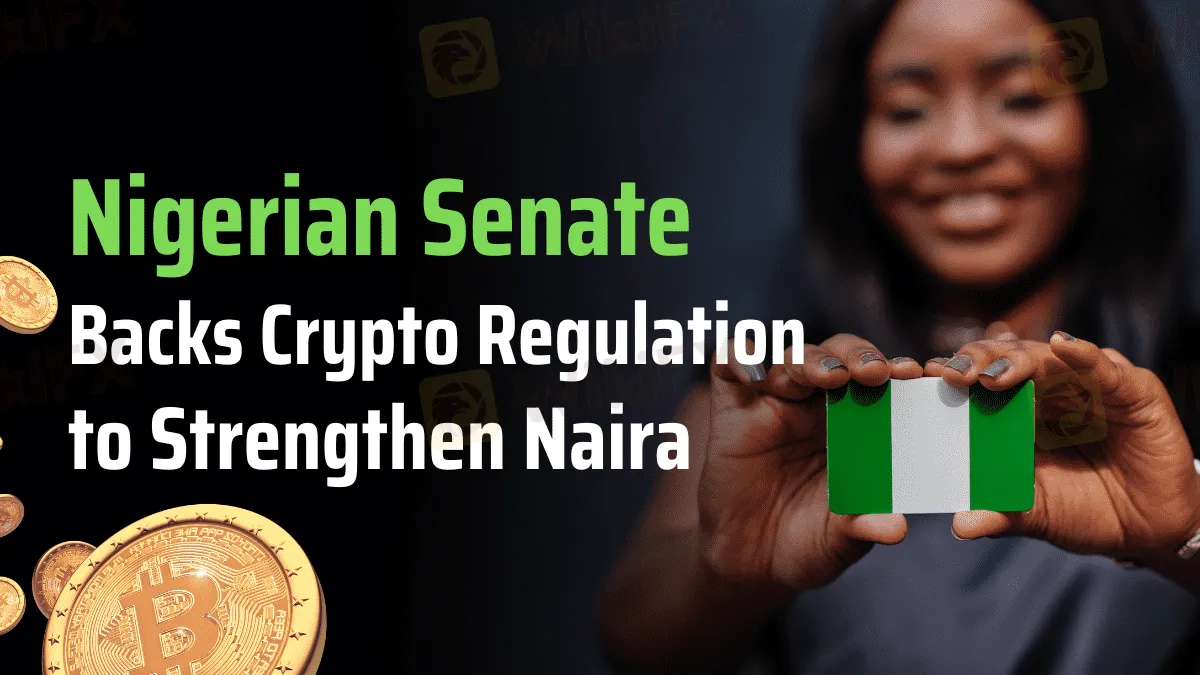简体中文
繁體中文
English
Pусский
日本語
ภาษาไทย
Tiếng Việt
Bahasa Indonesia
Español
हिन्दी
Filippiiniläinen
Français
Deutsch
Português
Türkçe
한국어
العربية
Nigerian Senate Backs Crypto Regulation to Strengthen Naira
Abstract:Meta Description: The Nigerian Senate supports cryptocurrency regulation to safeguard investors and strengthen the naira amid inconsistent policies. This move aims to boost economic stability and attract investments.

The Nigerian Senate Committee on Capital Markets has supported cryptocurrency trading regulation to strengthen the local currency and safeguard investors. The committee's move follows worries about Nigeria's confusing digital asset policy, which might hurt the country's economy.
The committee chairman, Osita Izunaso, noted Nigeria's inconsistent cryptocurrency legislation. The Nigerian Securities and Exchange Commission (SEC) has indicated a readiness to regulate crypto assets, but the CBN has consistently suppressed its expansion. Inconsistency has confused and may cost the nation economically.
Izunaso made these statements after the committee heard from recently appointed Nigerian SEC director-general Emomotimi Agama. Izunaso said that Nigerians have continued to trade crypto despite the CBN's attempts, making regulation the only feasible option. Nigeria may lose out owing to its ambiguous cryptocurrency posture, he said.
The February 2021 CBN order banned banks from supporting crypto transactions. Policy changed when previous CBN governor Godwin Emefiele left. Reversing this command was a great step toward balance.

However, Binance was raided for accused currency speculators when the naira rapidly depreciated against the U.S. dollar earlier this year. Global crypto exchanges were ordered to delist the naira, and Binance was punished for currency manipulation.
Nigeria is one of the top five Bitcoin-interested nations despite these hurdles. This shows how important Bitcoin is to the economy.
To protect the naira, Izunaso advised Bola Tinubu to build capital and crypto markets. He believed that improving these markets would increase financial system liquidity and reduce economic pressure on the local currency.
“That's hammering the naira and making it weaker against other currencies. However, developing our capital market and crypto market will increase system liquidity. That will ease our issues ”Izunaso said.
Pro-innovation Emomotimi Agama promises to revive the Nigerian capital market. He wants to launch creative initiatives that create world-class firms and change the market narrative. Agama supports the committee's recommendation for a more organized and regulated crypto ecosystem to attract investments and boost economic development.
In conclusion, the Nigerian Senate Committee on Capital Markets wants explicit cryptocurrency trading regulations. This step is crucial for investment protection and naira strengthening. The committee's call to action aims to enhance Nigeria's economy and stabilize its currency via digital assets.

Disclaimer:
The views in this article only represent the author's personal views, and do not constitute investment advice on this platform. This platform does not guarantee the accuracy, completeness and timeliness of the information in the article, and will not be liable for any loss caused by the use of or reliance on the information in the article.
Read more

FINRA Fines Rialto Markets $50,000 for Cybersecurity and Supervisory Failures
Rialto Markets LLC, a FINRA-registered broker-dealer headquartered in New York, has agreed to pay a $50,000 fine and accept a censure in a settlement with the Financial Industry Regulatory Authority (FINRA) over serious deficiencies in safeguarding customer information.

WikiFX Survey Team on Exclusive Markets: What Did They Find?
In a recent on-site investigation, the WikiFX Survey Team traveled to Seychelles to verify the existence and operational presence of the forex broker Exclusive Markets, which claims to be located at Room S42(b), Second Floor, Block Praslin Tower, Espace Building, Victoria, Mahé, Seychelles.

Receiving Guaranteed Forex Return Promises? BEWARE, It's a SCAM!
Discover how fraudsters have duped investors with guaranteed forex return schemes in this guide. Read, stay alert and informed before investing.

Investors Lose Millions as Dubai-based Gulf First Commercial Brokers Vanishes
Oh! Another forex scam news has emerged, hitting millions worldwide, including Indian investors. The culprit - Gulf First Commercial Brokers, a UAE-based brokerage firm.
WikiFX Broker
Latest News
Know the history of "Bank of India" before Investing — then Trade Confidently
Gold Prices Waver as Fundamentals Remain in Tug-of-War
FCA Warning List is Out: Check if Your Broker is on the List
Trading via Unauthorized Brokers? A Penalty of Up to INR 2 Lakh Awaits You!
AMarkets is an Unregulated Broker | You Must Know the Risks
How to Choose the Right VPS for Forex Trading
Markets4you Launches Global Giveaway to Celebrate 18th Anniversary
Still Falling for BotBro’s 60% Annual Forex Returns? Wake Up Before It Gets Too Late!
Webull Adds Crypto Trading Through Kalshi Partnership
Investment Scam Exposed: Deepfake Videos of Top Indian Leaders & Tech Icons misused to Lure Investor
Currency Calculator


